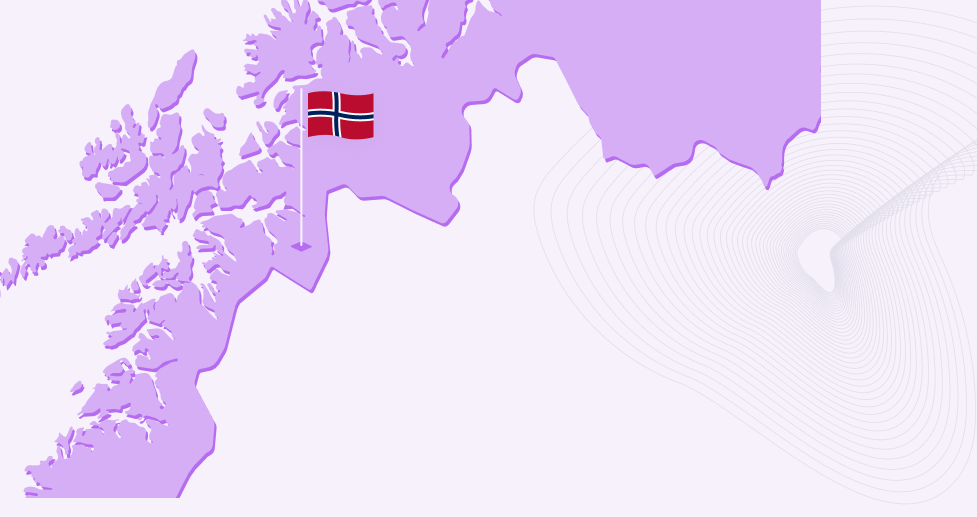Despite a relatively small population (about 6.2 million), the Baltic countries are a real sensation. After analyzing the recently published Baltic Startup Scene report, it can be said that this region is conquering the European startup scene, slowly growing into a tech hub leader in the CEE. Western Europe is more and more often looking towards the Baltic market to witness the success of its unicorns.
Why can the Baltic market become a new tech startups hub in the CEE?
First, some interesting facts. Total investments in the Baltic states in the period 2018-2019 (Q3) amounted to as much as 329.6 million euros. An impressive number! The largest number of startups is being developed in Lithuania – 920. Estonia with 650 start-ups is in the second place, while Latvia is in the third place with 518.
What is important, the dynamic growth is noticeable for all three countries. The increase in the number of startups in Lithuania year to year reached 572, and 66 in Latvia. The dynamic development of the Lithuanian market is also confirmed by further statistics – in 2018, there was a 788% increase in funding! The CityBee investment worth 110 million euros had the greatest impact on this amount.
In Estonia, the funding increased by 21.4%. The Baltic Startup Scene report points to the fact that the interest in investments from local and foreign venture capitals and business angels is growing all the time. Estonia is considered a country that boasts about being an innovation center.
An increase in investments was also recorded in Latvia. According to the Latvian Ministry of Economy, startups in 2018 raised 85.2 million euros in investments, over 30% more than in 2017. However, Lithuania and Estonia remain the Baltic market leaders. Latvia is developing dynamically, but the growth rate is noticeably lower than in the other two countries.
Considering the biggest funds raised by Baltic startups, companies such as Bolt, CityBee, Bitfury, Monese, Vinted and Pipedrive come to the fore. Basically, all these brands are well known in Europe, where they have their clients, both parties calmly looking at their further growth and expansion. Mainly thanks to Bolt, the market leader is the mobility sector. The next places are occupied by SaaS, fintech and blockchain companies.
One more interesting statistic is worth mentioning. Central and Eastern European countries reported a record in terms of financing venture capitals in 2018. Together, they collected 1.3 billion euros. Interestingly enough, the Baltic countries – in particular Lithuania and Estonia – contributed significantly to this result. The financing obtained by them constitutes as much as 46% of the total amount for Central and Eastern Europe.

Demand for software development on the Baltic market
The development of tech startups on the Baltic market is directly related to the increased demand for software development services. A few years ago, Codest decided to enter the market there. We have heard many positive opinions about the potential of that market, which is why we wanted to try it. Today I can say that it was a great business decision. We have established cooperation with great companies, such as Kesko Senukai Digital, SupplierPlus or Mogo Finance, written thousands of lines of code for them, built great products together and contributed to the development of these companies on the global market.

I believe that Polish software houses are an effective external software provider for companies and startups from the Baltic market. The distance between these countries is not large and there is no time difference. In addition, I noticed that we have a very similar mentality and approach software development projects in a comparable manner. In short, we understand each other well; it is very important to have corresponding ideas during the development of products and software and to pursue the same goal.
In November 2019, we participated in the Fintech Inn 2019 in Vilnius. It was a great conference where we met many startups from the Baltic market. We had the opportunity to talk, exchange comments, discuss software development. I must admit that I am impressed with the CEOs’ and CTOs’ awareness regarding the approach to product and software development. This region was once mistakenly associated with the Eastern (Soviet) mentality, but if someone still thinks so – let me assure you that you are wrong. I realize that there are many thriving hubs in Europe, like London and Berlin. Tech entrepreneurship is also developing very well in Nordic countries, in particular in Stockholm. However, I have no doubt that the Baltic market is a tech startups hub in CEE and can easily compete with the largest markets in the world.
Considering all these factors, I enjoy the success we can observe on the Baltic market even more. I am convinced that in 2020 tech startups from Lithuania, Estonia and Latvia will celebrate another great financial result, new investments and new unicorns. I keep my fingers crossed! Their potential is huge.
Read more:








